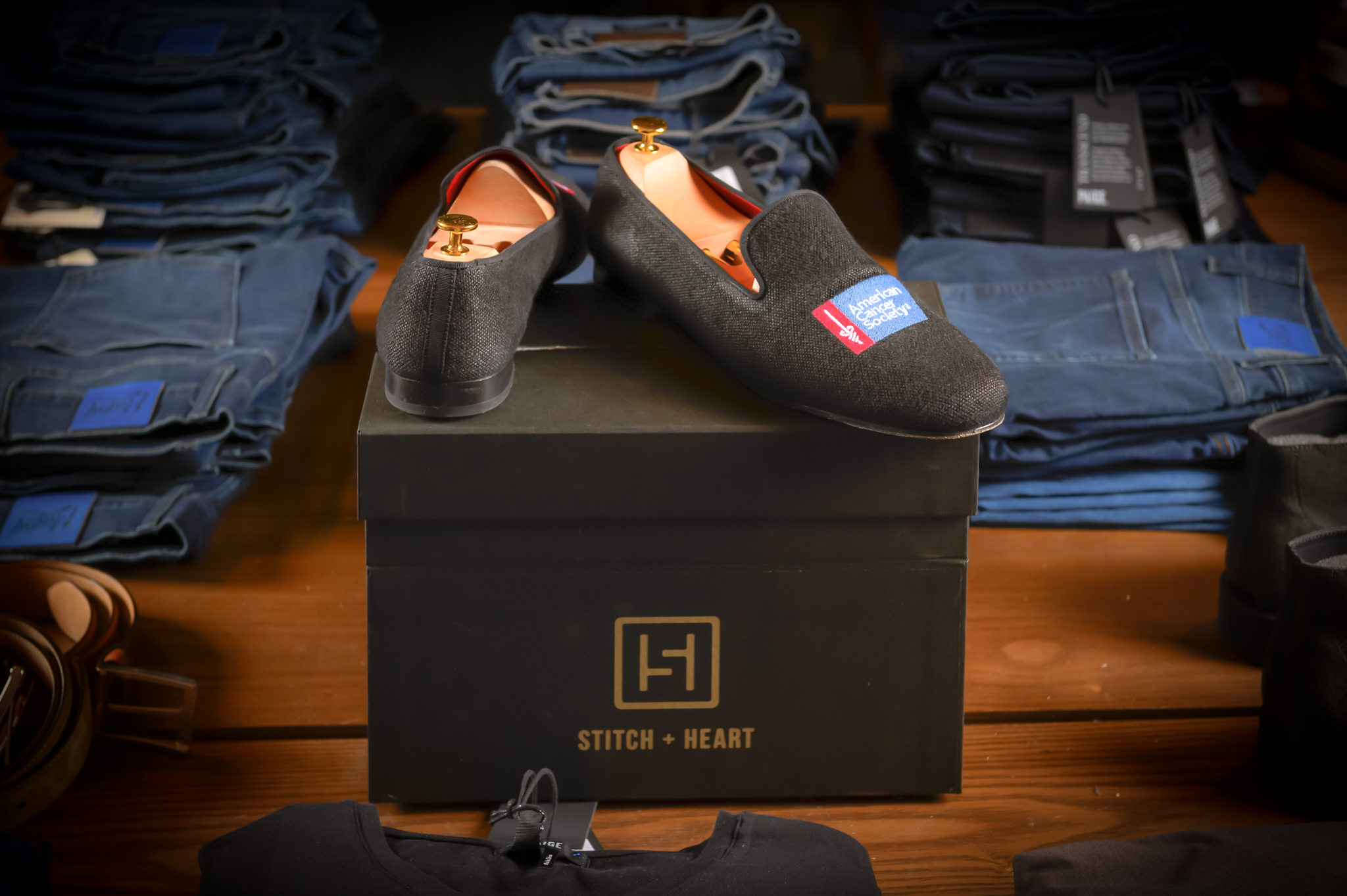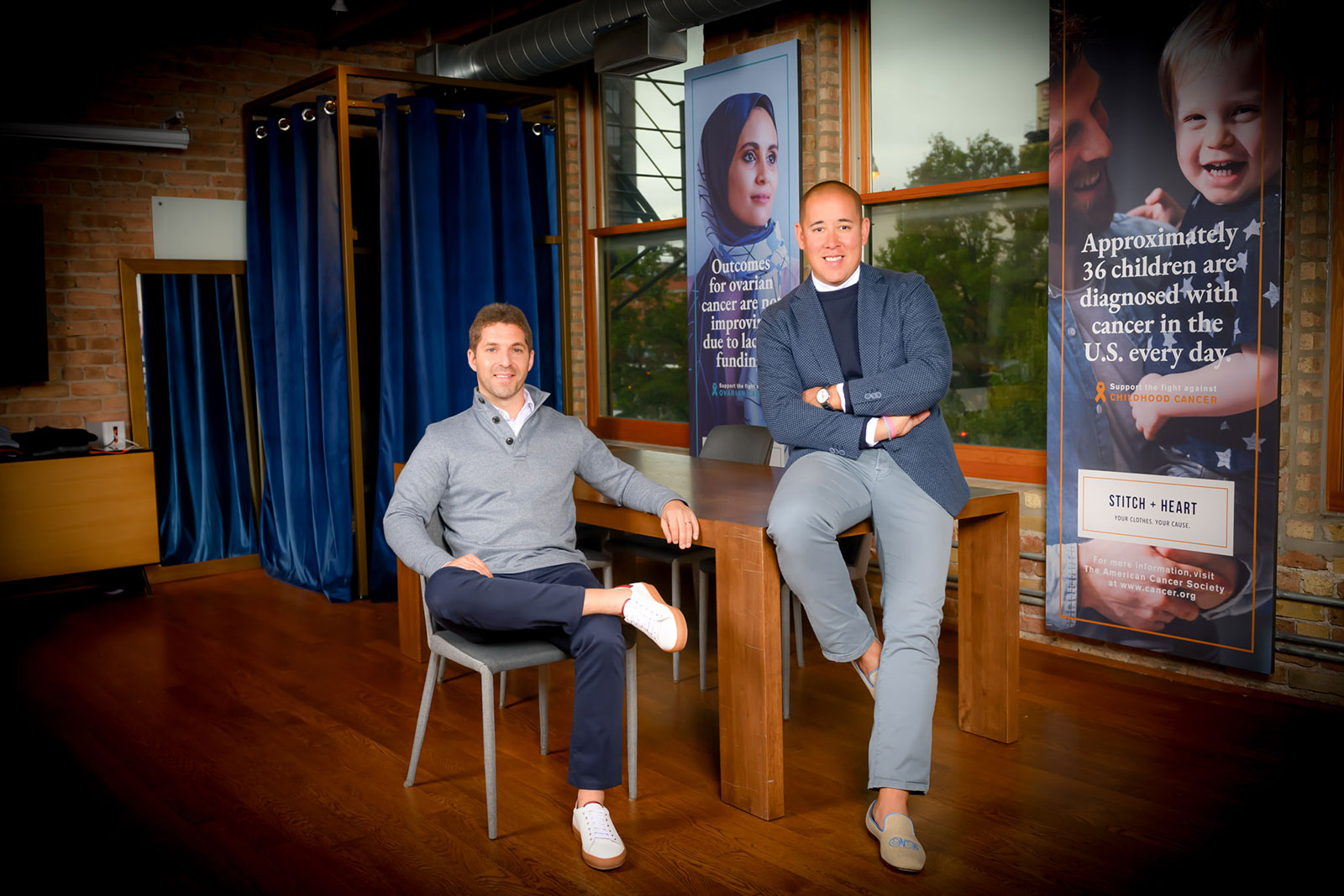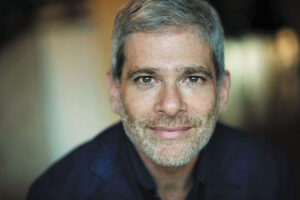In a fast-fashion consumer apparel market driven by cheap prices and even cheaper clothing, Stitch + Heart offers something different: a truly beautiful shopping experience. The upstart company describes itself as a stylist-led, 1-to-1 menswear experience prioritizing the customer. That means, rather than selling poorly made, trend-fueled clothing, the Stitch + Heart team works with each individual customer to build a complete wardrobe based off their favorite-fitting clothing. To sweeten the deal, 10 percent of a customer’s total purchase goes toward cancer charities like the Anthony Rizzo Foundation or the American Cancer Society. But a closer examination shows the Stitch + Heart origin story may be even more interesting than the brand itself.
Stitch + Heart was born when childhood friends Bill Burnett and Michael Barkin were in search of the next path of their professional lives. Burnett had just sold his business to LinkedIn and Barkin had just left Trunk Club, a company he cofounded. Then, illness struck. “Two days after I sold my business, my mom was diagnosed with ovarian cancer,” says Burnett, whose father was also diagnosed at one point with non-Hodgkin lymphoma. “I went through this period of the high of highs professionally and the low of lows personally.”
Being thrust into such an experience gave Burnett a new perspective on what would come next in his career. “I just started talking to Michael, and said, ‘I don’t know what’s next, but I learned that whatever I want to do next, I want to do something that gives back,’” says Burnett.
We all as human beings inherently have this thing that says you should go do more, you should find a way to impact the world to do better.
-Michael Barkin, Stich + Heart
“Because, while I’m watching all of these investors and my business get paid, and I’m certainly happy for them because they deserved it, I’m also seeing what really matters.”

Barkin had similar questions in mind for his post-Trunk Club life. “I think one of the things you think about often when you’re in this luxury direct-to-consumer space is: Does this really matter?” Barkin says. “We all as human beings inherently have this thing that says you should go do more, you should find a way to impact the world to do better.”
Soon, a company was born. Although discussions around Stitch + Heart began informally, Burnett and Barkin knew how to launch their business quickly and efficiently by using the lessons they learned from their previous work experiences. “We thought, is there something more here? Could we recruit people? Could we get vendors to work with us again? Could we basically recreate some of the same engine that was out there and do it in a different way, a way that gives back a little bit?” Burnett asks. “And the short answer to that was, yes, you could do that. And so we said, ‘All right. Let’s do it.’”
Stitch + Heart curates the clothes men love, in the fit they love, for the causes they love. The company’s team of stylists take your favorite pieces of clothing, from a well-worn pair of jeans to an old T-shirt to your favorite suit, and replicates the fit to build a complete wardrobe from head to toe. And along with the new clothes, 10 percent of your total purchase goes to a cancer-focused charity.
We started building a relationship around ideas, questions like, what could this look like? And how can we give back in a more meaningful way?
-Bill Burnett, Stitch + Heart
Selecting the Anthony Rizzo Foundation and the American Cancer Society for their first two charities was an easy decision. Burnett’s sister-in-law runs the Anthony Rizzo Foundation. “For us, we wanted a trusted source,” says Burnett. As for the American Cancer Society, Stitch + Heart first connected to the nonprofit’s then-director of Illinois, Peter Steele, about updating his wardrobe through Stitch + Heart. “We started building a relationship around ideas, questions like, what could this look like? And how can we give back in a more meaningful way?” Burnett says. The Stitch + Heart and ACS formal partnership was initiated this year. Stitch + Heart attended all five of the ACS marquee events this year and proceeds were donated to the organization. “Because we are the donor, every one of these brands would love, I think, to work with us because we’re writing checks,” Barkin says. “And so it puts us in a unique position to sit back and think to ourselves, what do we need, or want, out of whatever our partnerships look like today and in the future?”

The brand hopes to be a spot for repeat customers. Rather than maintaining a customer base for one-off clothes shopping experiences, their team aims to facilitate long-lasting relationships with their customers so they are always influenced to shop for quality goods from a company that also does good.
“I think one of the feelings we chase is that a customer should be thinking, ‘I don’t want to buy clothes any other place, because they looked at me like a human being, they personalized every single aspect of that interaction, and the end product I received was better than anything I’ve had before,’” Barkin says. “The icing on the cake is, oh, by the way, those are really good people who did good with the profits. It wasn’t just about being capitalist and taking every penny that they could get out of the business to make more and more. No, they put themselves aside as well and did really good things with the money they made.”







